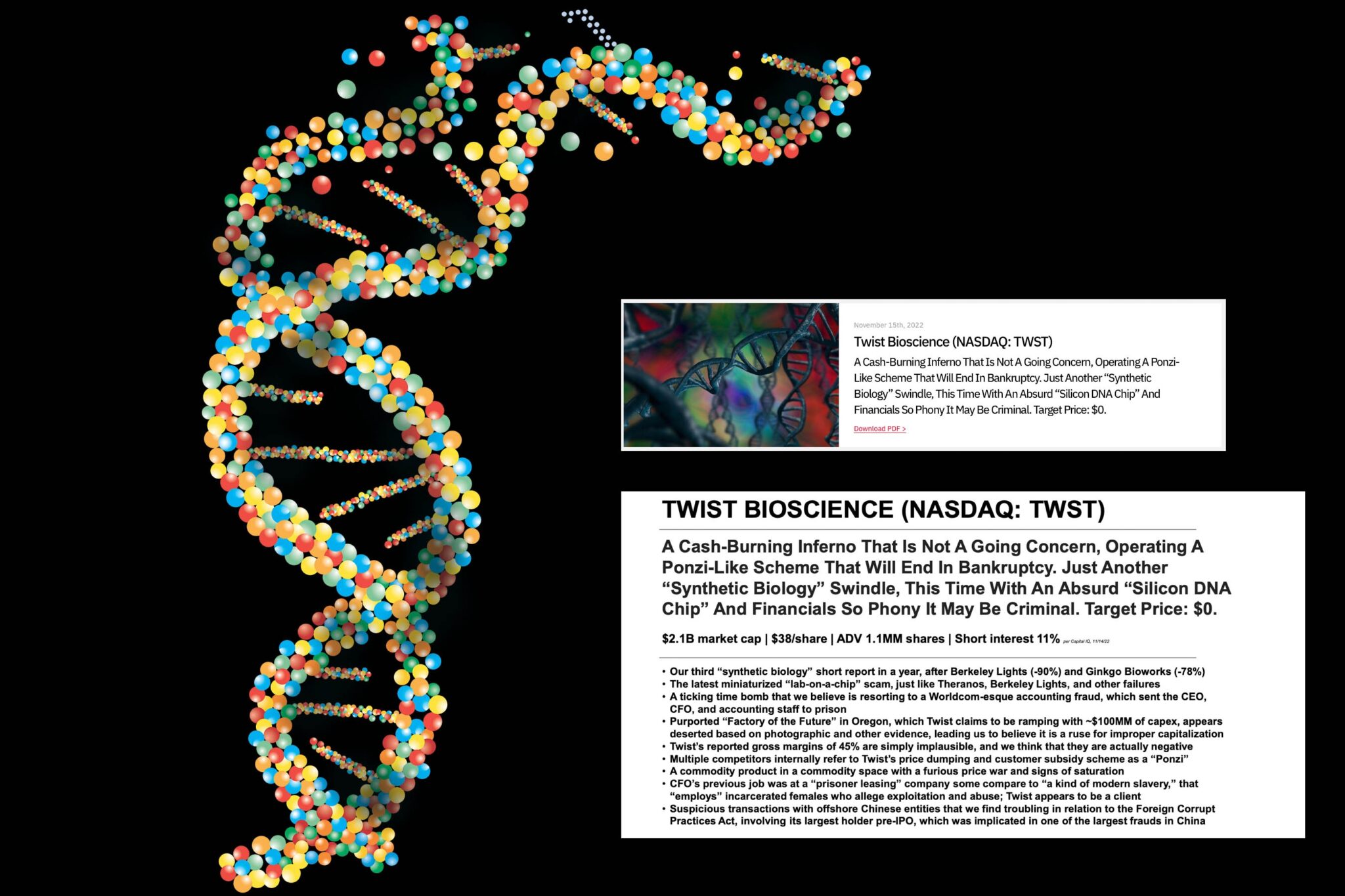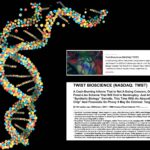The CEO of the controversial firm says the new service is possible to due its existing technology, plus increased capacity at the Wilsonville facility
Earlier this week, the Wilsonville-based biotech firm Twist Bioscience Corporation announced its new “Express Genes” synthesis service. The company says it’s now capable of manufacturing and shipping a DNA order with a shipping turnaround time of five to seven business days – approximately half the time of some of its competitors.
In an email to Oregon Business, founder Emily Leproust says the faster turnaround time is made possible by Twist’s proprietary silicon chip technology combined with increased capacity, space, and streamlined manufacturing processes at the Wilsonville plant.
“All of our genes are made using the same process and machinery. Both Express Genes and standard speed genes are made using our proprietary process to miniaturize the chemical reaction to create DNA and write DNA on a silicon chip,” Leproust writes. “This allows us to manufacture 1 million pieces of DNA (oligos) at a time on a single chip, in the same space other companies make 96 pieces of DNA.”
The release quotes a scientist employed by Shape Therapeutics, a gene therapy startup with locations in Boston and Seattle, saying being able to order sequence-verified large synthetic gene constructs in a week “expands what we can screen and allows faster iterations of the design-build-test cycle.”
It also includes a quote from Anne St. Louis, director of Percepta Associates, a market research firm and consultancy focusing on life sciences, saying that according to Percepta’s survey of “several hundred gene users,” a large portion purchase DNA and also make their own. “These data suggest that there is a market to capture from researchers in industry and academia who currently use vendors for only part of their total gene production.”
In May, Twist announced it would slim its San Fransisco operation and move the majority of its manufacturing of synthetic biological products to the Wilsonville site, though it would continue making next generation sequencing panels in San Francisco. The company cut 270 jobs, approximately 25% of its workforce.
Leproust told OB that the decision to consolidate the bulk of Twist’s manufacturing operation to its Wilsonville factory was due to the amount of space needed to manufacture genes in an assembly-style process.
“This was a large contributor to the reduced turnaround time that enabled us to launch Express Genes,” she writes.”
“As a gene therapy startup developing programmable RNA medicines, we routinely generate diverse and customized DNA sequences to advance our technologies and enable application to multiple disease targets. Being able to order sequence-verified large synthetic gene constructs in just one week expands what we can screen and allows faster iterations of the design-build-test cycle,” said Susan Byrne, Senior Principal Scientist, Shape Therapeutics, in Twist’s press release.
The announcement comes nearly one year to the day after the company’s stocks tumbled following a blistering report from the activist shortseller Scorpion Capital that described the gene manufacturing company as a “cash-burning inferno” destined to end in bankruptcy.
The report, compiled by New York-based activist short-seller Scorpion Capital, claimed Twist’s secret proprietary technology did not actually speed up production, but instead relied on an inefficient, labor-intensive process. The report, based on 20 interviews with ex-executives, former Twist employees, customers, competitors, and industry experts, called Twist’s process “a Ponzi-like scheme” and compared Twist’s purported silicone chip technology with disgraced Theranos founder Elizabeth Holmes’s fraudulent “lab on a chip.”
In an interview with Oregon Business last year, Leproust defended her company’s proprietary technology and accused Scorpion Capital of “trying to make a quick buck” with the short. She said Twist’s proprietary silicon chips accelerated the process of growing DNA strands by minimizing the amount of unusable DNA offshoots that are created during the conventional process of synthetic gene production.
Scorpion Capital found Kir Kahlon tells Oregon Business over email that Twist’s Express Genes sounded suspicious and like “press-release hype.” He says Scorpion Capital would still rate Twist’s stock value at $0.
“[Twist] burns cash at a level that generally leads to bankruptcy,” Kahlon writes. “They certainly don’t appear to have packed up and moved to Oregon. LinkedIn shows about 200 people in Oregon, a small fraction of total employees. This of course calls into question what the tens of millions of dollars in purported capital expenditures for that facility were for, given the tiny number of staff up there.”
Editor’s Note: This story has been updated from an earlier version, which inaccurately described changes made at Twist in May. Oregon Business regrets the error.





